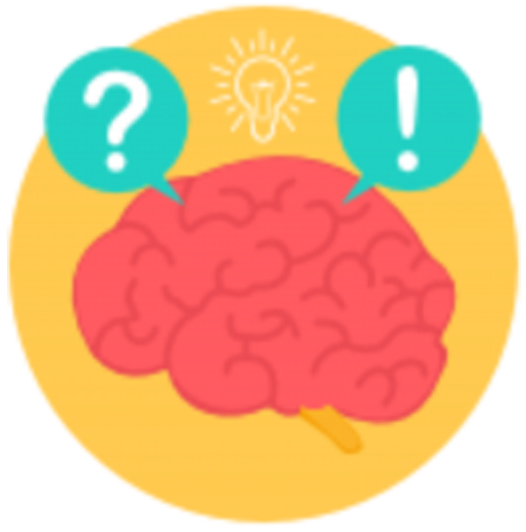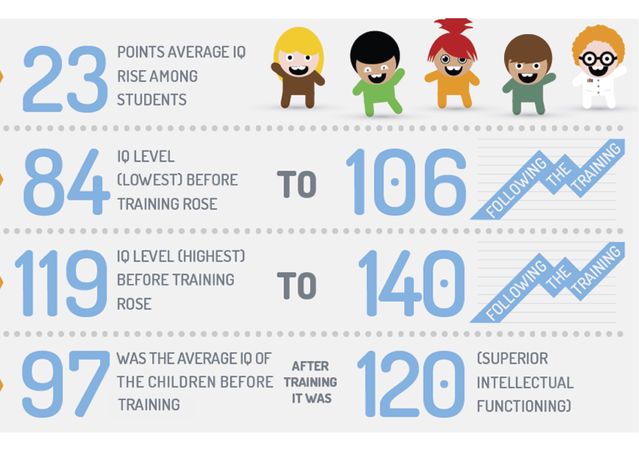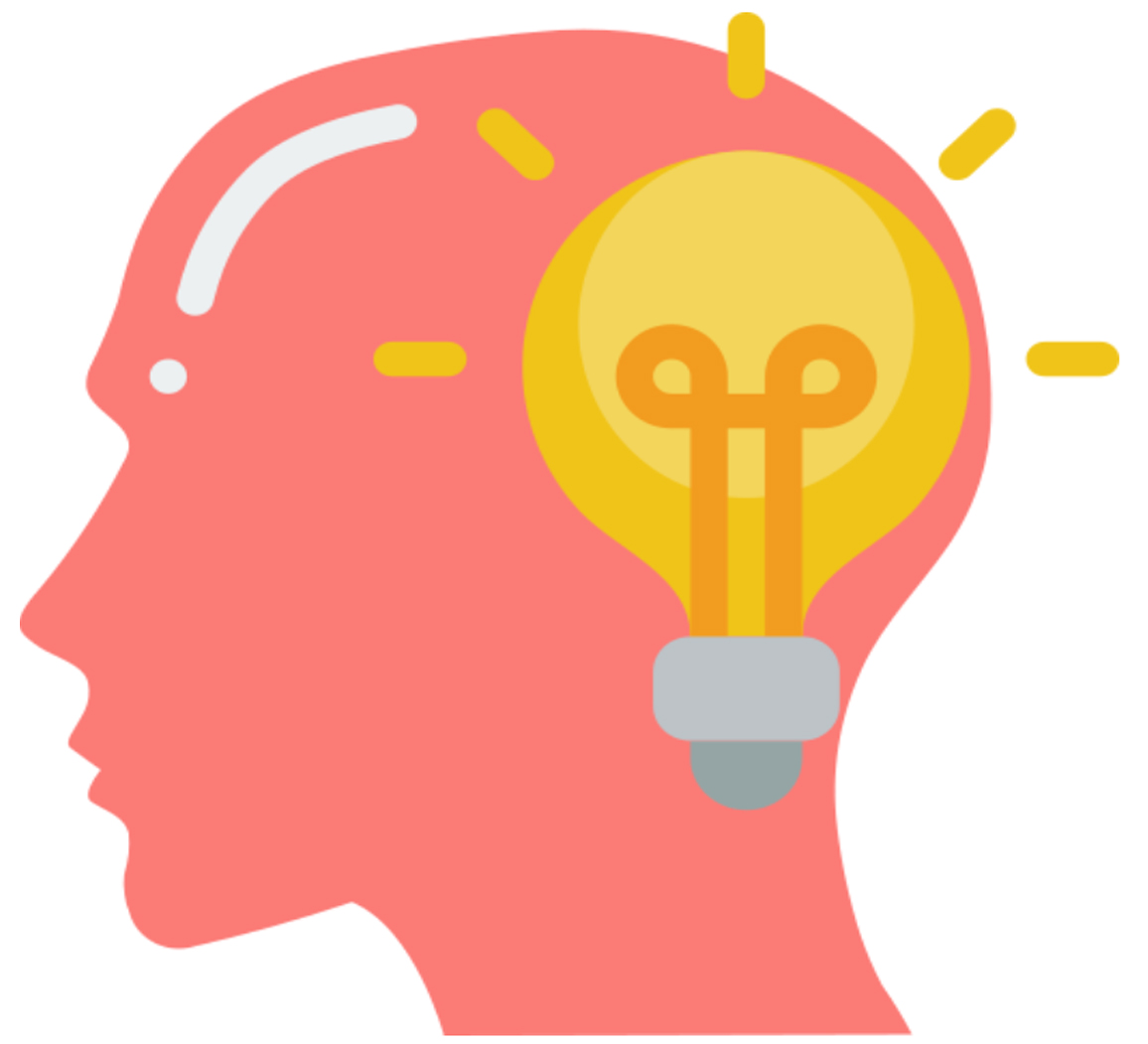You have probably heard that you cannot improve IQ. But that is not strictly true.
Can we improve IQ or is IQ fixed for life? Well, you may have read in various places that your IQ is fixed for life. That is somewhat true - but for surprising reasons is also misleading. In truth the apparent stability of your intelligence is somewhat of a trick conjured up by intelligence test developers, psychologists and statisticians who have already started their work from the position that you cannot improve IQ meaning intelligence is fixed for life.
This idea is based on little more than the intuition of Sir Francis Galton, and the pondering of some early IQ researchers such as Catell, Spearman and Sir Cyril Burt. Some of these researchers had political motivations for this position, and indeed Sir Cyril Burt was posthumously disciplined for by the British Psychological Society for faking his IQ research data to fit with the idea that IQ is fixed for life and is determined biologically.
No psychological research has ever FOUND that intelligence is fixed
for life. Instead, tests for general and specific intellectual ability
are developed in such a way that your score from one test take to
another (say a year apart) will not change much. The simplest way in
which this is achieved, is by masking the gain in your improvement over
time by NOT calculating your real raw score on the test, but instead
calculating your score in terms of how it compares relatively to people
of your age.
Because everyone of your age is improving intellectually at the same
rate this way of scoring the IQ test creates the false impression that
you are not getting any smarter. Indeed, the whole population is
getting smarter (an effect known as the Flynn effect), but tests are
regularly revised to make sure that this is disguised. The tests are
designed in advance so that someone in the bottom 20 percent of the
population, for example, will continue to score well below the average
score. As the population becomes smarter, the gap closes between the
raw score of someone on the 20
th percentile and the average score of someone on the 50
th percentile (always defined as a score of 100).
The newer tests open the gap again to keep the low scorers scores
down and away from the average score. This is intended to disguise the
fact that the lowest scorers in the population are in fact doing much
better than people just one generation ago. More illusion and confusion
for the general public!
You Can Improve IQ and The Data Proves it!
Aside from errors in the logical argument that IQ must be fixed for
life, based on the finding that your IQ scores do not change across time
much (when the test is rigged to guarantee that!), it is simply NOT
true that people do not develop and improve intellectually. Admittedly,
the evidence is weak that you can achieve large IQ gains from simply
playing a brain training app. But the evidence is not weak, that you
can show improvements in IQ from targeted educational interventions,
such as those developed within the field known as Applied Behavior
Analysis. Practitioners in that field have, for many decades, been
producing exceptionally large IQ gains in children with learning
difficulties.
Across many scientific papers that I (Dr. Bryan Roche) and others
have published over the past decade, it has been shown repeatedly that
scores on a wide variety of standardized measures of intelligence and
cognitive abilities, can be raised significantly using a Relational
Frame Theory-based intervention known as SMART (Strengthening Mental
Abilities with Relational Training) that does not involve training of
skills directly relevant to IQ tests.

The SMART method is closely related to the types of techniques used
in Applied Behavior Analysis and was developed across several peer
reviewed scientific papers. Calling the SMART method “brain training”
may be a bit of an over-simplification. It is targeted fundamental
intellectual skills training done in a digital format. We have argued
for many years that this is clear evidence for “far transfer”. That is,
we consistently get very large gains in IQ for most or all users of
SMART training, that we have made available at RaiseYourIQ.com, on every
and all measures employed to asses intelligence (e.g., arithmetic,
vocabulary, reading), despite the fact that our intervention is in no
way “training to the test”. That is, there are no IQ test items in our
training.
Our classic online training uses nonsense words only (no recognisable
or nameable words or shapes of any kind). Our training for younger kids
does use images and real words as a workup to the classic training so
widely cited in the scientific research literature. We train only a
small number of syllogistic-style reasoning tasks that we have
discovered are relevant to almost every aspect of intellectual
functioning. But we do it across thousands of tasks over many months of
casual training in an online game-like environment.
you can improve IQ:
Despite the admittedly almost unbelievable results obtained for the effects of SMART training at
RaiseYourIQ.com,
across several studies from several labs using several different
measures across several different populations, the public is still not
convinced that IQ tests of all kinds measure a flexible skill set rather
than a fixed trait and that you can in fact Raise Your IQ. The data is
out there. The data is published in peer reviewed scientific journals of
all kinds. The discussions of this data happen at conferences all over
the world – but it takes time for these ideas to replace well-worn
tropes about the fixedness of intelligence. That old idea is stuck
firmly in the public psyche, even though the evidence for this outdated
position is questionable in terms of theory and incorrect in terms of
empirical data.
WHAT underlies my IQ score then?
What our research program at Maynooth University, Ireland, has
found, is that there is indeed an underlying factor that determines our
IQ score, but it is not something we are born with – it is a skill set
that is in fact quite easy to teach and improve. That skill set is
known as
Arbitrarily Applicable Relational Responding (AARR),
which is a technical way of referring to a very particular type of
logical reasoning that underlies all higher levels of day-to-day
intellectual activity (reading, problem solving, language acquisition).
Dozens of published studies in the field of Relational Frame Theory
have shown that this skill is easily improved, and others, mostly using
SMART training, have shown that when we do this, large IQ gains follow.
Here is an example of the type of AARR training task that we might
use in SMART training. This example uses what we call nonsense words and
requires the user to solve a logical puzzle of a very particular type.
CUH is opposite to DEJ
ARU is the same as GEY
ARU is opposite to DEJ.
Are CUH and GEY the same?
It is NOT important for the user to know the answer at the outset (the answer is yes!).
This is not a test. It is
training.
What is important is that across thousands of such examples (many
easier than this example) we teach users the correct answers, and so
they learn the very large pattern of possible ways in which such logical
statements lead to logical conclusions involving relationships among
words or things in the world. We increase the speed and accuracy of
users on such tasks in logical stages, from the lowest level upwards,
using an algorithm that we have worked out across research studies. When
we do this people get smarter.
It is time to change our view of Intelligence

It is said that science is a self-correcting process. The data will
always correct the theory and lead us forward in developing more
effective ways to help people. Now, old fashioned and outdated
intelligence theory is moving further and further away from the
empirical facts. The political reasons for holding on to those old ideas
is hampering, rather than helping us in developing better interventions
to improve IQ and raise the intellectual ability of the world’s entire
population. It is time to move on and get with the data. For more
information and research references visit
SMART brain training









